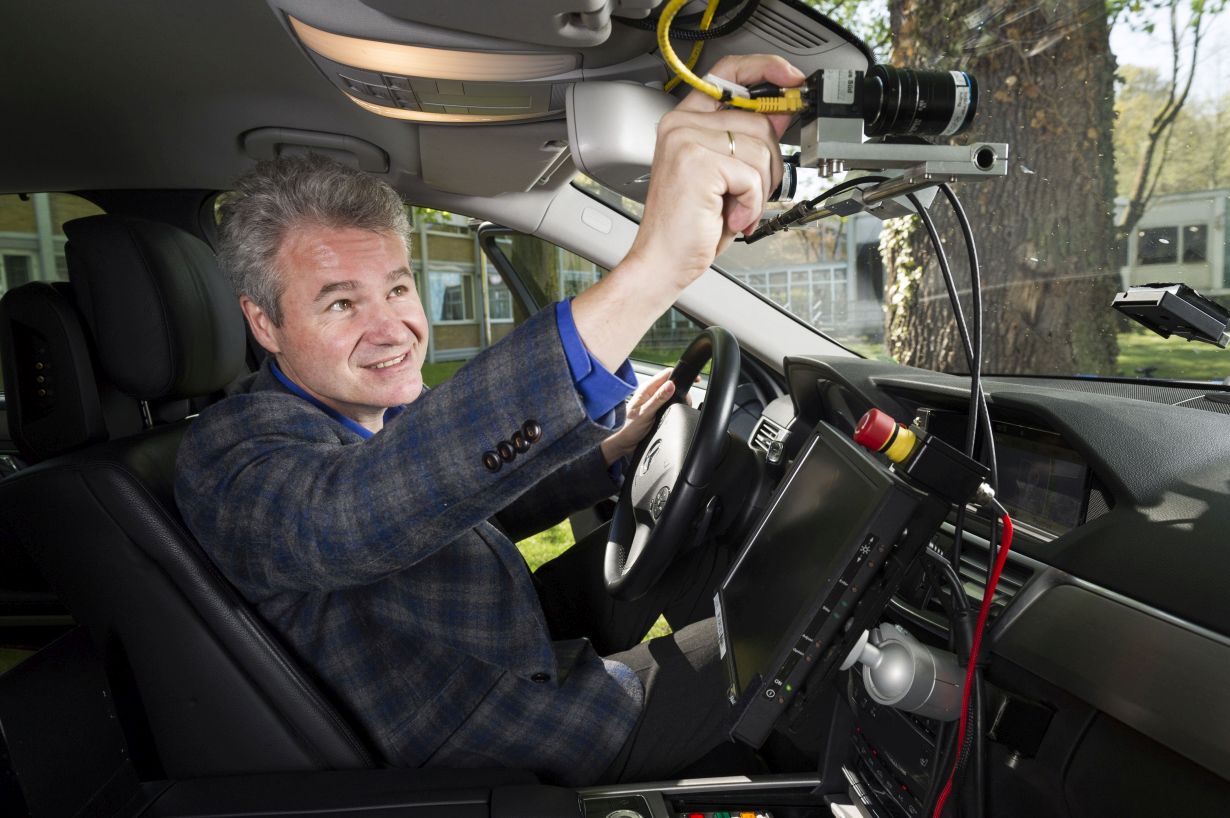“Künstlich aber real – die stille Revolution der KI-Technologien” (Artificial but real – the silent revolution of AI technologies) is the title of a forthcoming series of lectures at the Colloquium Fundamentale of ZAK | Center for Cultural and General Studies at the Karlsruhe Institute of Technology (KIT) discussing the various aspects of Artificial Intelligence. The opening lecture entitled “Schach dem Menschen. Deep Blues Sieg und die Ge-schichte Künstlicher Intelligenz” will be given by Martina Heßler, Professor for History of Technology, on Thursday, May 23, 2019 at 6:30 pm in the NTI lecture room at KIT Campus South (Engesserstrasse 5, building 30.10).
Often unnoticed, Artificial Intelligence (AI) has found its way into our lives, be it Alexa and Siri in living rooms, satellite navigation devices in cars, or voice and face detection systems in mobile phones. Clever algorithms and smart machines offer a promising future and bear the potential to transform the job market and revolutionize research. At the same time, the growing influence of AI also produces fears and insecurities.
What precisely is Artificial Intelligence, what can it do and how can we understand its complexity? Is a social order controlled by AI still a pie in the sky or has it already become reality? Which role do we want AI to play in our lives and how can we contribute to preserve ethics in a future shaped by AI?
On the occasion of the Science Year 2019 with its focus on Artificial Intelligence, experts from different disciplines will delve into these and other questions around the topic of Artificial Intelligence. Featured topics include the benefits of the most recent technological developments as well as the points brought forward by AI critics, and those AI technologies that are already governing many aspects of our daily lives. This series will provide insights into the current situation and enable a multi-faceted exchange through lectures and audience discussions.
In her opening lecture entitled “Schach dem Menschen. Deep Blues Sieg und die Geschichte Künstlicher Intelligenz”, Professor Martina Heßler will outline the history of Artificial Intelligence and discuss fundamental questions related to the man-machine relationship. The lectures of the Colloquium Fundamentale will all be held at 6:30 PM on the dates listed below. Entry is free.
Dates and Lecturers at the Colloquium Fundamentale:
May 23, 2019: Schach dem Menschen. Deep Blues Sieg und die Geschichte Künstlicher Intelligenz
Prof. Martina Heßler, Professor for History of Technology at the University of Technology Darmstadt will speak about humankind being under pressure after the chess victory of Deep Blue, and about the history of Artificial Intelligence.
June 6, 2019: Mobile maschinelle Wahrnehmung für Automatische Automobile
Prof. Christoph Stiller, Director of the KIT Institute of Measurement and Control, will speak about how autonomous cars perceive the world around them.
June 27, 2017: A.I. & Speech: A Silent Anthropomorphism?
Prof. Björn W. Schuller, FIEEE, CSO – University of Augsburg & Imperial College London & audEERING
This lecture in English will be held in the banquet hall of the Student’s Cultural Centre at KIT, Adenauerring 7. Please register for this event by sending an email toculture-china ∂does-not-exist.intl kit edu.
July 11, 2019: PrognoNetz: Erhöhung der Übertragungskapazität mittels intelligenter Stromnetze
Prof. Wilhelm Stork, Head of Microsystem Technology at the Institute for Information Processing Technology of KIT, will speak about PrognoNetz, a project aimed at increasing the transmission capacity of electrical power by means of intelligent networks.
July 18, 2019: KI, Ethik und Gesellschaft – Entwicklungen, Erwartungen und Herausforderungen
Prof. Oliver Bendel, Professor at the Institute for Commercial Information Technology, University of Applied Sciences Northwestern Switzerland (FHNW), will speak about developments, expectations and challenges in the context of AI, ethics, and society.
For more information on lectures and lecturers, please see the information available online at
http://www.zak.kit.edu/english/colloquium_fundamentale.php
More about the KIT Information · Systems · Technologies Center: http://www.kcist.kit.edu
In close partnership with society, KIT develops solutions for urgent challenges – from climate change, energy transition and sustainable use of natural resources to artificial intelligence, sovereignty and an aging population. As The University in the Helmholtz Association, KIT unites scientific excellence from insight to application-driven research under one roof – and is thus in a unique position to drive this transformation. As a University of Excellence, KIT offers its more than 10,000 employees and 22,800 students outstanding opportunities to shape a sustainable and resilient future. KIT – Science for Impact.

